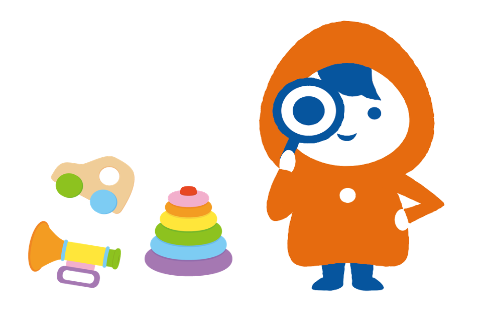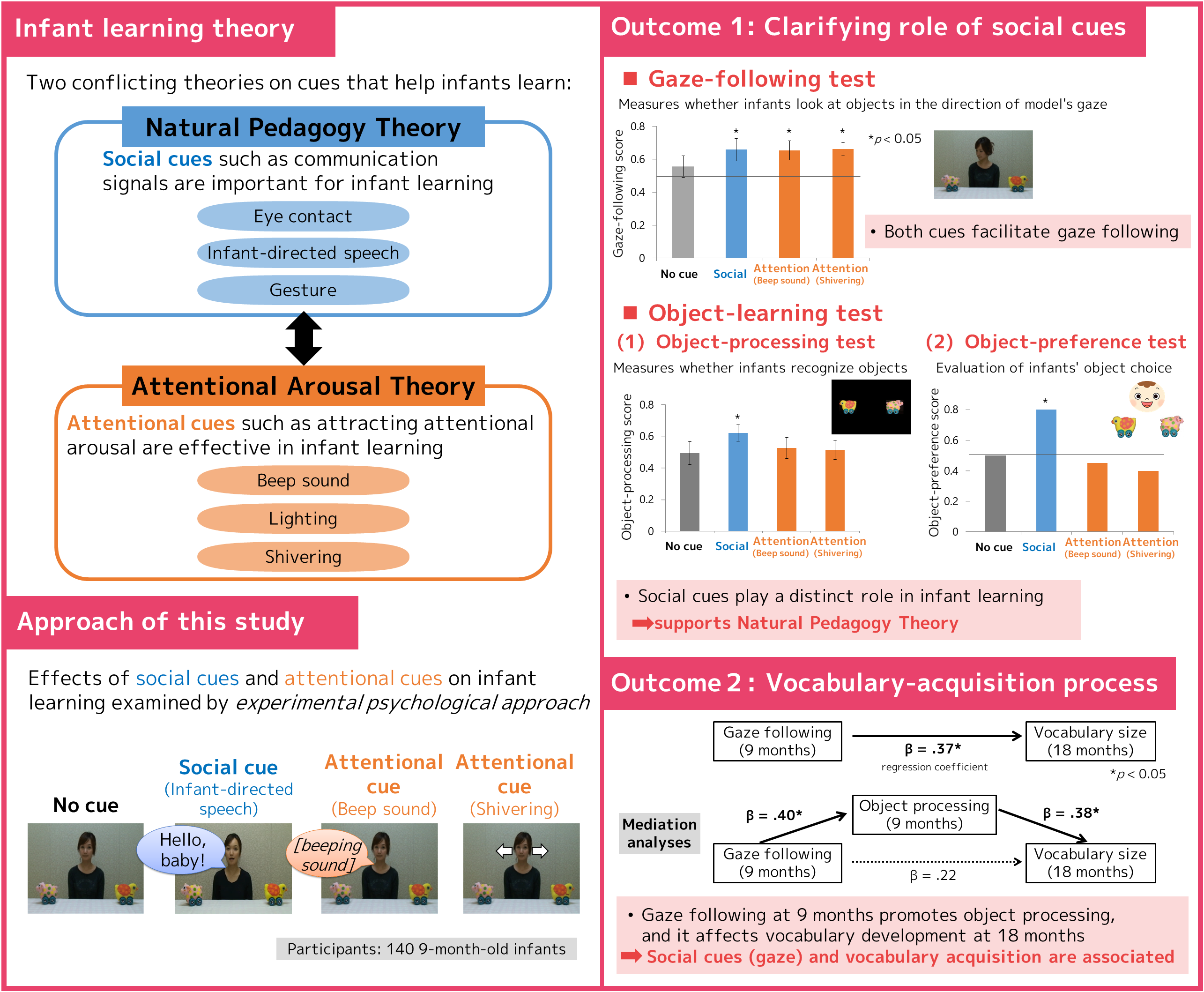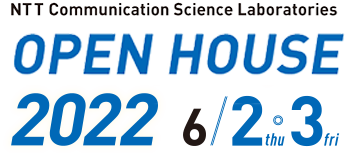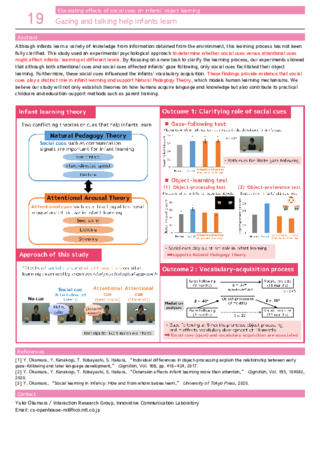| 19 |
Gazing and talking help infants learnElucidating effects of social cues on infants' object learning 
|
|---|
Although infants learn a variety of knowledge from information obtained from the environment, this learning process has not been fully clarified. This study used an experimental psychological approach to determine whether social cues versus attentional cues might affect infants' learning at different levels. By focusing on a new task to clarify the learning process, our experiments showed that although both attentional cues and social cues affected infants' gaze following, only social cues facilitated their object learning. Furthermore, these social cues influenced the infants' vocabulary acquisition. These findings provide evidence that social cues play a distinct role in infant learning and support Natural Pedagogy Theory, which models human learning mechanisms. We believe our study will not only establish theories on how humans acquire language and knowledge but also contribute to practical childcare and education-support methods such as parent training.

[1] Y. Okumura, Y. Kanakogi, T. Kobayashi, S. Itakura, “Individual differences in object-processing explain the relationship between early gaze-following and later language development,” Cognition, Vol. 166, pp. 418–424, 2017.
[2] Y. Okumura, Y. Kanakogi, T. Kobayashi, S. Itakura, “Ostension affects infant learning more than attention,” Cognition, Vol. 195, 104082, 2020.
[3] Y. Okumura, “Social learning in infancy: How and from whom babies learn,” University of Tokyo Press, 2020.
Yuko Okumura / Interaction Research Group, Innovative Communication Laboratory
Email: cs-openhouse-ml@hco.ntt.co.jp



